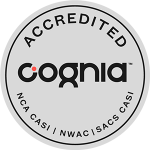Many parents and their children were thrust into homeschooling with little say in the matter. COVID-19 forced children to learn from home, and without a homeschooling guide in place, the new territory was a learning experience for parents and students alike. The transition from a traditional school to an online learning environment can be challenging for parents and students alike.
The good news is that you can homeschool your child, ensure their safety, and do it in a structured, professional manner. Homeschooling can be a joyous time for both parents and their students. The time spent together teaching and learning is time spent discovering who your children are, how their brains work, and what motivates them to succeed. You will have a wonderful opportunity to teach your children life lessons that you might not have had time for otherwise. This is time and effort spent that you won’t regret, and it’s time that you will look back on as a wonderful investment in your child’s future.
Homeschooling Guide 101: State Requirements and Laws
Homeschooling is a choice that parents and guardians alone must make for their children. If you want your child to learn in a manner that truly meets their needs, teaching them at home is your best option. Each state has their own laws in place for homeschooling. Your state may have no requirements, while others have strict requirements.
States with high regulations include:
- Massachusetts
- New York
- Pennsylvania
- Rhode Island
- Vermont
You’ll have to meet much more strict requirements in these states than in others. Moderate and low regulations are present in most states, and quite a few states have no notice requirements.
The states with the most relaxed homeschooling laws are:
- Alaska
- Connecticut
- Michigan
- Idaho
- Indiana
- Illinois
- Iowa
- Missouri
- New Jersey
- Oklahoma
- Texas
Your first step as a parent is to contact your local school district to learn the requirements for homeschooling, or you can use a resource like HSLDA.org.

State Requirements to Verify Learning
In many states, all you need to do is to provide notice to your school authority that you’ll be homeschooling your child. Since states have the best interest of the child in mind, they may ask you for a variety of materials that will show that your child is getting an adequate education.
The materials that may be required include:
- Notify the school that you’ll be homeschooling your child
- Provide copies of quiz and test scores
- Outline of what your child will be learning this year
- Standardized testing results
- Samples of your child’s works
- Records of your child completing work
- Child portfolio evaluation by a certified teacher
States may or may not have these requirements, but it’s never a bad idea for parents to continue to maintain their child’s transcripts and to have their child take standardized tests. If your child ever does want to enter public schooling or when they begin making plans to attend a college or university, all of this documentation will make the process easier.
Choosing a Homeschooling Curriculum
One of the biggest decisions that you’ll have to make is choosing what learning preferences and styles that you prefer. There are a lot of options, but there’s no one-size-fits-all approach that works well for every child.
A good choice, and one that works best for most parents, is to choose a curriculum that offers a mix of all learning styles:
- Aural
- Kinesthetic
- Logical
- Social
- Solitary
- Verbal
- Visual
Even if your child is a great visual learner, incorporating multiple forms of learning allows the information to solidify in the child’s memory. For example, your learner may prefer visual learning, but the concept may be better learned using social or verbal skills.
Homeschooling allows you to use a variety of approaches to satisfy a curriculum while also supplementing activities into the program that include the child’s learning preferences. There’s also a chance that your child’s learning preference can change over time, so paying close attention to what is effective for your student and what is not effective will help you as you navigate your homeschooling curriculum.

How To Choose
Unless you’re an educator, it’s best to use a curriculum that is written by educators. Why? A lot of time and resources go into an educator’s curriculum to ensure that students have a well-rounded education.
Additionally, the world has changed since most parents have left school. New concepts and information is constantly being added to both curriculum and the world of educational philosophy and standards.
Entrusting a trained professional with the content portion of homeschooling will give you, the parent, an opportunity to focus more on your student and less on researching and gathering lessons to teach. If an educator has worked with children in a certain age group often, they’ll know how these children best learn and how to communicate with them.
As a parent learning how to start homeschooling, it’s important to spend a lot of time finding a curriculum provider that you trust and who will provide your child with the best results possible.
There are a lot of approaches to take, but a few of the most important are:
Values & Goals: Your family is certain to have values and goals that you would like to be met. You will want to choose a curriculum that is closely aligned with your goals for your child’s moral and world-view upbringing.
A few questions to ask yourself are:
- What skills would you like your child to learn?
- What sort of values or viewpoint would you like your child to follow?
One or Many: Curriculum can be used for every subject. You may find one provider that you really like and use all of their curriculum. Other parents are more discerning and will choose to go with multiple providers to see which one offers the best options for each subject.
You’ll want to spend a lot of time choosing a curriculum because this is what your child will follow throughout the entire school year. Switching your child’s homeschool curriculum mid-year is not ideal and should be avoided if at all possible.
Teaching Materials
Your child needs a lot of help from you to ensure that their homeschooling is superb. When you homeschool, you also need help. Your help comes in the form of teaching materials that will help guide you through your child’s education.
As a parent, you won’t need to figure out the entire teaching process on your own if you have the right teaching materials.
Below are some helpful materials you may use::
- Lesson plans. Publishers have a variety of lesson plans available that you can follow to teach your child.
- Keys. Tests and quizzes come with keys so that you can grade all of the material without needing to go back through the coursework multiple times.
- Teaching aids. A variety of teaching aids can help you understand and present concepts in new, exciting ways.
You should ask the curriculum publisher if they have any recommendations on the teaching materials that you should use or if any are included. The proper materials can help you better teach your child.
Once you’ve reached the end of this homeschooling guide, you still have a lot of work to do. Some of those steps include determining your child’s grade placement, studying and using lesson plans, and then adapting your plans based on your child’s performance.
Homeschooling can be rewarding and help your child get the personal approach to learning that they deserve. It is a time investment well spent getting to know your child and ensuring they have the best, most-advantageous future that you can provide both educationally and in growing to be a good person and a responsible, successful adult.




